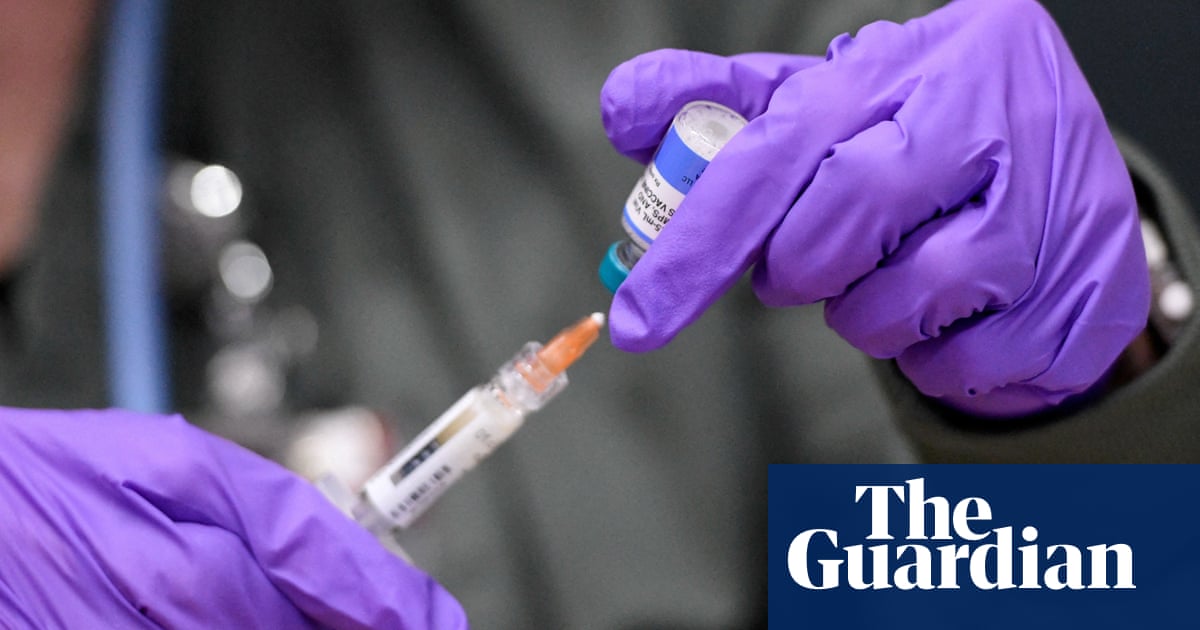(The Guardian) RFK Jr defends his handling of US measles outbreak
Robert F Kennedy Jr defended his management of the ongoing measles outbreak in the US, telling Republican senator Jerry Moran, of Kansas, that he’s urging people to get vaccinated against the virus, The Hill reports.
Moran asked Kennedy what the Department of Health and Human Services needed in order to best respond to the outbreak, which has surpassed 1,000 cases. Kennedy said: The best way to prevent the spread of measles is through vaccination. We urge people to get their MMR vaccines. I spent a lot of time with the Mennonites and the MMR vaccine has millions of fragments of human DNA in it, from aborted fetal tissues, and that’s a religious objection for them that I have to respect. We’ve done a better job at controlling measles since I came into this agency than any other country in the world. Today, we’re at 1,035 cases and we only added 27 cases last week.
As (Guardian correspondent) Jessica Glenza wrote recently, although Kennedy has tepidly endorsed the measles, mumps and rubella (MMR) vaccine to prevent measles, he has also made false and inflammatory claims about the vaccine, including repeating the above false claim that it contains “aborted fetus debris”. The rubella vaccine, like many others, is produced using decades-old sterile fetal cell lines derived from two elective terminations in the 1960s.
The US is enduring the largest measles outbreak in a quarter-century. Centered in west Texas, the measles outbreak has killed two unvaccinated children and one adult and spread to neighboring states including New Mexico and Oklahoma.
The US eliminated measles in 2000. Elimination status would be lost if the US had 12 months of sustained transmission of the virus. As of 1 May, the US Centers for Disease Control and Prevention (CDC) reported 935 confirmed measles cases across 30 jurisdictions. Nearly one in three children under five years old involved in the outbreak, or 285 young children, have been hospitalized.

 www.theguardian.com
www.theguardian.com
Robert F Kennedy Jr defended his management of the ongoing measles outbreak in the US, telling Republican senator Jerry Moran, of Kansas, that he’s urging people to get vaccinated against the virus, The Hill reports.
Moran asked Kennedy what the Department of Health and Human Services needed in order to best respond to the outbreak, which has surpassed 1,000 cases. Kennedy said: The best way to prevent the spread of measles is through vaccination. We urge people to get their MMR vaccines. I spent a lot of time with the Mennonites and the MMR vaccine has millions of fragments of human DNA in it, from aborted fetal tissues, and that’s a religious objection for them that I have to respect. We’ve done a better job at controlling measles since I came into this agency than any other country in the world. Today, we’re at 1,035 cases and we only added 27 cases last week.
As (Guardian correspondent) Jessica Glenza wrote recently, although Kennedy has tepidly endorsed the measles, mumps and rubella (MMR) vaccine to prevent measles, he has also made false and inflammatory claims about the vaccine, including repeating the above false claim that it contains “aborted fetus debris”. The rubella vaccine, like many others, is produced using decades-old sterile fetal cell lines derived from two elective terminations in the 1960s.
The US is enduring the largest measles outbreak in a quarter-century. Centered in west Texas, the measles outbreak has killed two unvaccinated children and one adult and spread to neighboring states including New Mexico and Oklahoma.
The US eliminated measles in 2000. Elimination status would be lost if the US had 12 months of sustained transmission of the virus. As of 1 May, the US Centers for Disease Control and Prevention (CDC) reported 935 confirmed measles cases across 30 jurisdictions. Nearly one in three children under five years old involved in the outbreak, or 285 young children, have been hospitalized.

World may be ‘post-herd immunity’ to measles, top US scientist says
As infections pummel communities in the US, Mexico and Canada, fear of ‘the most contagious human disease’ grows
